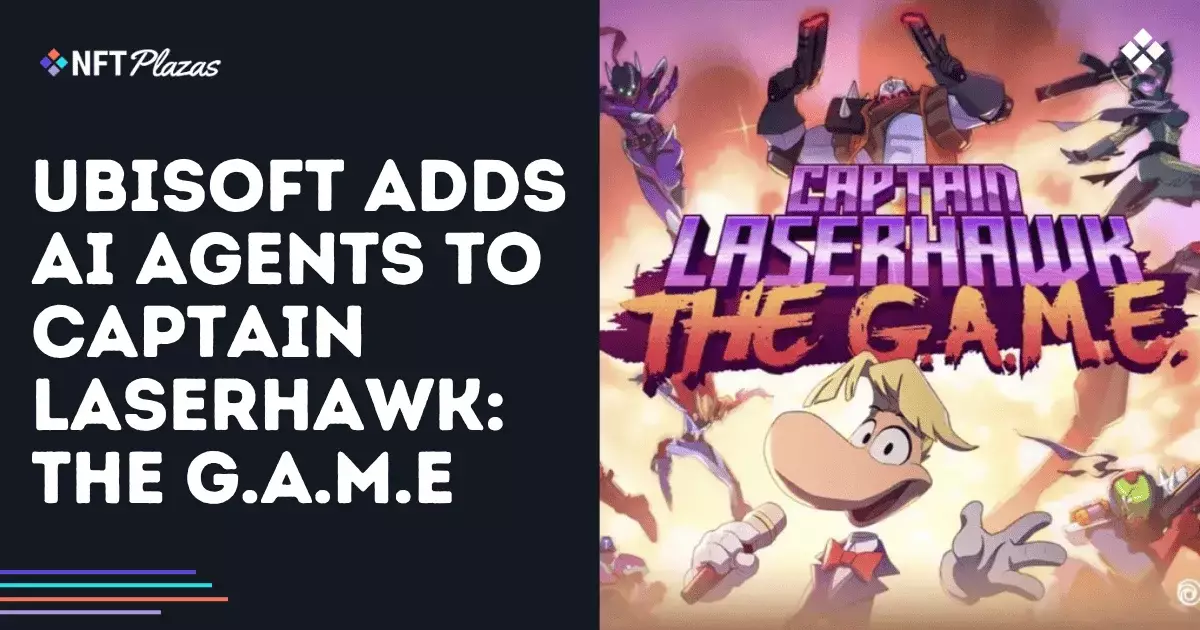In an era where technology relentlessly pushes the boundaries of interactive entertainment, Ubisoft’s latest experiment with AI integration in blockchain gaming underscores a troubling trend—an overreliance on automation to sustain player engagement. By introducing AI agents into *Captain Laserhawk: The G.A.M.E.*, Ubisoft claims to be pioneering a new frontier where virtual characters not only participate but actively govern within the game’s ecosystem. While the concept of autonomous decision-making might sound innovative on paper, it signals a broader movement that risks undermining core values of gameplay: human agency, skill development, and genuine interaction.
Here, the game assigns each NFT character a corresponding AI agent, capable of analyzing proposals, voting, and making strategic decisions based on traits embedded in their NFT metadata. This system aims to ensure uninterrupted gameplay, especially when players become inactive, raising alarming questions about the nature of player involvement and the authenticity of their virtual experiences. Instead of fostering meaningful engagement, Ubisoft’s automation risks turning game worlds into static environments where human input is auxiliary at best, replaced by algorithms that execute decisions on behalf of players.
The Illusion of Choice and the Erosion of Player Agency
One of the most disconcerting implications of Ubisoft’s approach is the erosion of genuine choice. Players may have the option to override AI decisions, but the default assumption is reliance on autonomous agents that operate, at least temporarily, without direct human oversight. This presents a paradox: a game that ostensibly celebrates player control is increasingly scripted to function with minimal human intervention. Such a model feeds into a dangerous narrative that rote automation can substitute for human judgment in complex, strategic settings—an idea that dilutes the richness of interactive storytelling and decision-making.
Moreover, the system’s design to log all decisions and actions on-chain might appear to promote transparency, but it also shifts the focus away from meaningful gameplay experience. Instead of crafting narratives based on player creativity and skill, players are nudged toward a passive role where their characters’ choices are mediated and often dictated by AI. As the game evolves, the increasing influence of AI could progressively diminish the importance of human input, effectively transforming players into spectators of their own digital worlds, rather than active participants.
Autonomy as a Double-Edged Sword in Gaming Evolution
Ubisoft’s experiment taps into a controversial debate about the utility and risks of AI-driven content in games. On one hand, autonomous agents can fill gaps—keeping worlds lively, and maintaining progression when players lack time or interest. On the other hand, this convenience comes at a cost. By prioritizing continuity through AI independence, studios are inadvertently promoting a diluted form of engagement that may ultimately lead to desensitization and disinterest.
Furthermore, the promise that AI models are moderated to prevent harmful content sounds reassuring but is ultimately superficial. Human oversight is often necessary to recognize nuanced, culturally sensitive, or ethically complex decisions—something AI still struggles with. As such, delegating governance to AI in a game centered on blockchain and NFTs raises questions about accountability. What happens when there are disagreements, unintended consequences, or manipulations within these autonomous systems? The transparency promised by blockchain can be a safeguard, but it cannot inherently prevent flawed decision-making or exploitative behaviors.
Implications for the Future of Gaming and Society
While Ubisoft presents this move as an innovative frontier, it reflects a broader societal peril: automation creeping into aspects of life that require human nuance and empathy. The gaming industry, often viewed as a microcosm for technological progress, risks normalizing superficial automation that reduces complexity and authenticity. This stance may appeal to developers seeking efficiency but betrays a shallow understanding of what makes games compelling—authentic human input, unpredictable challenges, and the thrill of mastery.
Policymakers and players should remain critically aware of this trend. Automated governance, though seemingly beneficial in maintaining continuity, can subtly reinforce passivity, diminish critical thinking, and foster dependence on algorithms. The true potential of gaming lies in its capacity to be a medium for human expression and social interaction—not as a proving ground for AI experimentation masquerading as innovation. If the industry continues down this path, it may sacrifice the depth and integrity of storytelling and gameplay in favor of convenience and technological showmanship.


Leave a Reply